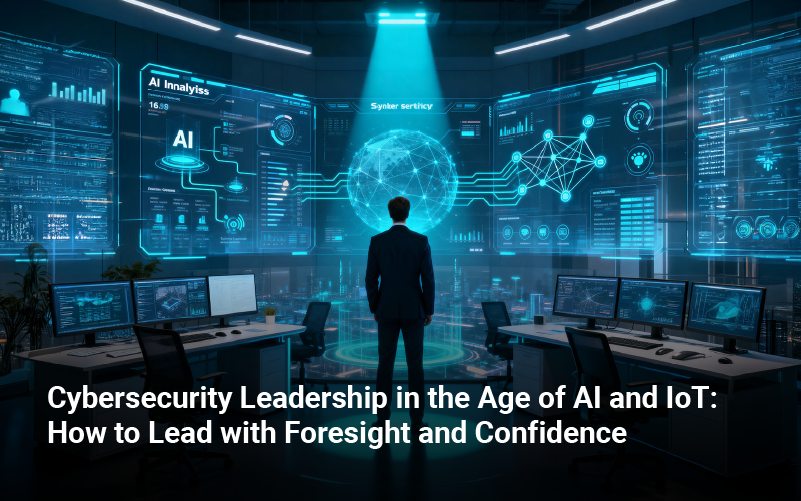As we step into 2025, the world of cybersecurity is becoming increasingly complex. Cyber threats are advancing rapidly, requiring organizations across the globe to implement innovative solutions to outpace cybercriminals. The rise of emerging technologies, combined with evolving cyberattack tactics, makes it critical to adopt robust cybersecurity strategies to safeguard sensitive information.
For professionals with a master of cybersecurity or those working with a cybersecurity masters program, this era presents an opportunity to lead and innovate within the cybersecurity landscape. Let’s explore the emerging trends and technologies shaping the future of cybersecurity.
1. The Age of Quantum-Safe Security:
Quantum computing promises revolutionary advances in computing power, but it also threatens traditional encryption methods. By 2025, the cybersecurity industry must adopt post-quantum cryptography (PQC) to prepare for the quantum revolution.
Why It Matters:
Quantum computers could possibly compromise the security of commonly used encryption algorithms like RSA and ECC, posing a serious threat to data security. According to a report by the NIST (National Institute of Standards and Technology), the transition to quantum-safe algorithms is expected to take 5 to 10 years, but the time to begin is now.
Inspiration:
For those pursuing a master’s in cybersecurity, specializing in quantum-safe security is an opportunity to work on groundbreaking projects in cybersecurity. By leading the way in the implementation of quantum-resistant algorithms, you can become a trailblazer in the fight against next-generation cyber threats. Cybersecurity master professionals will drive the change needed to future-proof critical infrastructure, making a global impact on cybersecurity resilience.
2. The Proliferation of Artificial Intelligence in Cyber Defense
AI and machine learning are no longer supplementary technologies; they are the backbone of modern cybersecurity. In 2025, AI will be used to analyze vast datasets, detect anomalies, and predict potential threats in real-time. The global AI in cybersecurity market is anticipated to rise at a CAGR of 24.4% from 2025 to 2030 to reach USD 93.75 billion by 2030 (Grand View Research, 2024).
Why It Matters:
With AI’s ability to process enormous amounts of data, it can detect and respond to cyber threats faster than human teams. This enables organizations to reduce the impact of security breaches, detect threats early, and enhance the efficiency of security operations.
Inspiration:
For those with a master’s in cybersecurity, understanding AI and machine learning tools is no longer optional; it’s essential. These technologies will enable you to build intelligent systems capable of independently detecting and responding to threats. As a cybersecurity master, you’ll be equipped to lead in this evolving field, where automation and intelligence are key to defending organizations against sophisticated cyberattacks.
3. Expanding the Perimeterless Model of Zero Trust Everywhere:
Zero Trust is becoming the default security model in the modern era. By 2025, Zero Trust architecture will be implemented across cloud environments, remote workforces, and IoT devices, ensuring secure access for users and devices regardless of their location. According to a report by Cisco, nearly 86.5% of organizations have begun embracing zero-trust security, but many still have a long way to go (Cisco, 2023).
Why It Matters:
The increase in remote work, cloud computing, and mobile devices has made traditional perimeter-based security obsolete. Zero Trust addresses this by continuously verifying the identity of users and devices, lowering the risk of insider threats and lateral movement by attackers.
Inspiration:
For those pursuing a master’s in cybersecurity, Zero Trust offers a rich area for specialization. By learning how to design and implement zero-trust architectures, you will be prepared to help businesses secure their networks and data in a perimeter-less world. As a cybersecurity master, you will be at the forefront of this security model, enabling organizations to succeed in a rapidly advancing digital environment.
4. Transforming Security in the Digital Age with Blockchain:
Blockchain is not just for cryptocurrencies—it is becoming an integral part of cybersecurity. By 2025, blockchain will play a crucial role in securing data transactions and providing immutable, decentralized records for critical data. Reports show that blockchain’s potential to enhance data security is one of its primary use cases, with industries ranging from finance to healthcare adopting blockchain for data integrity.
Why It Matters:
Blockchain technology guarantees data integrity by preventing unauthorized changes or tampering, offering an additional layer of security. This makes it an ideal solution for sectors like healthcare, finance, and supply chains, where data integrity is paramount.
Inspiration:
For those with a master’s in cybersecurity, blockchain offers exciting opportunities to work on revolutionary projects that improve data security. With a cybersecurity master, you will have the skills to help businesses implement blockchain solutions, ensuring the integrity of sensitive data and protecting organizations from potential cyberattacks.
5. Reinventing Identity Verification with Behavioral Biometrics:
Behavioral biometrics is emerging as a powerful tool for cybersecurity. By analyzing how users interact with devices such as typing patterns, mouse movements, and navigation behavior—this technology can continuously verify the identity of a user.
Why It Matters:
Behavioral biometrics provides an extra layer of security by analyzing patterns of behavior that are unique to individuals. Unlike traditional biometrics, which can be spoofed, behavioral biometrics adds a dynamic layer of verification that makes it challenging for attackers to compromise accounts.
Inspiration:
As someone studying for a master’s in cybersecurity, mastering behavioral biometrics positions you to create secure authentication systems that go beyond PINs and passwords. This specialization will make you a leader in the development of next-generation identity verification technologies, enabling you to make organizations more secure. As a cybersecurity master, your expertise will be highly sought after as businesses look to protect themselves from account takeover and identity theft.
Leading the Charge into 2025
References:
Grand View Research. (2024). AI In Cybersecurity Market Size & Trends. https://www.grandviewresearch.com/industry-analysis/artificial-intelligence-cybersecurity-market-report
Cisco. (November 2023). Security Outcomes for Zero Trust: Adoption, Access, and Automation Trends. https://www.cisco.com/c/dam/en/us/solutions/collateral/security/zero-trust/zero-trust-outcomes.pdf







